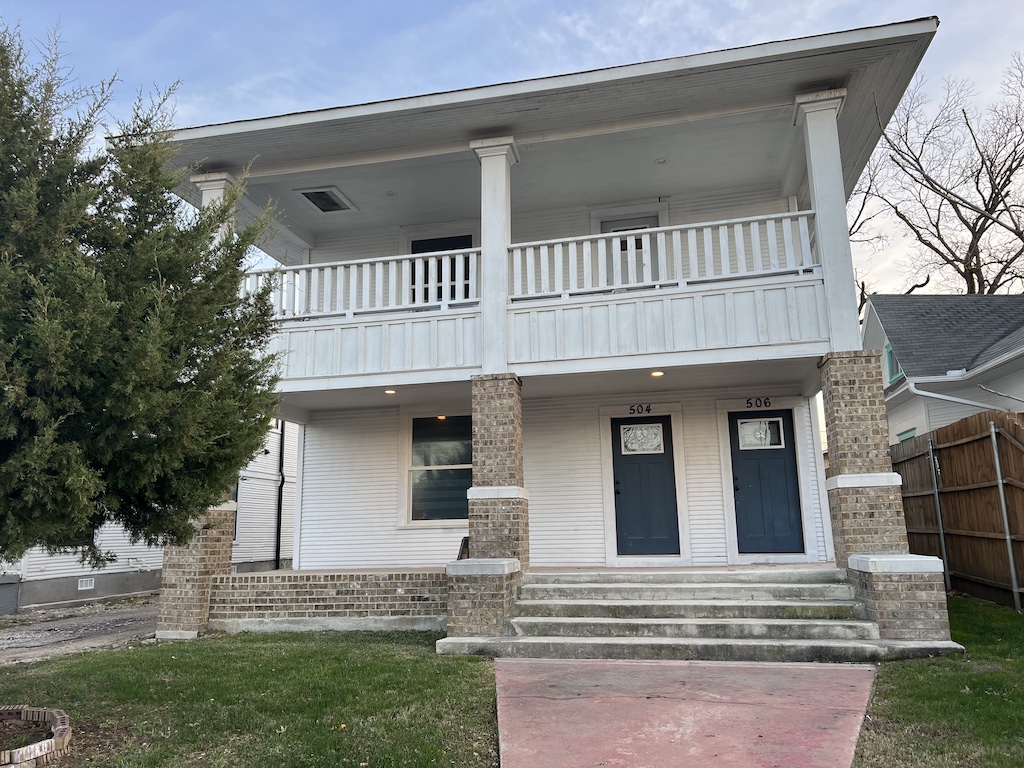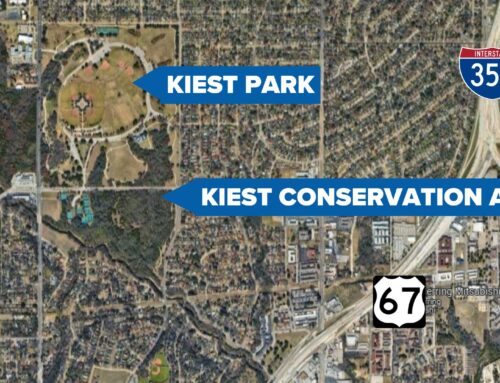It’s important to know that Wednesday afternoon’s city council briefing on tri- and four-plex housing in single family neighborhoods was a conversation, not a proposal.
The discussion on a zoning tool that has been used by other cities as a solution for housing density and affordable housing options, was met with opposing responses by city council members. Some said “gentle density” is “not the end of the world” and others warned that opening up single family zoning would “open the floodgates” on overdevelopment.
The briefing was requested by a five-signature memorandum filed by District 1 Council Member Chad West back in November 2023 that requested information on the following:
- The impacts of reducing minimum lot sizes in single family districts
- Definitions of new uses of “tri-plex” and “four-plex”
- An amendment to single family and duplex district regulations to allow tri- and four-plex uses
- Modification to the Dallas Building Code to allow for three- and four-unit structures to be included in the one- and two-family dwelling code
Andrea Gillis, interim director of the city’s planning and urban design department, prefaced the city staff briefing by saying there was no proposal (i.e. nothing to be voted on) on the table and that the city should not take a one-size-fits-all approach to tri- and four-plex housing.
Presented by Assistant Director Andreea Udrea, the briefing outlined possible steps forward for pursing tri- and four-plex developments in single family zoned areas. The city currently has 18 residential districts all based on minimum lot size, and the current development code has no “sensitivity to context,” Udrea warned, meaning large, single family developments that “don’t fit” in a neighborhood may be allowed by right, while a “plex” that fits a neighborhood aesthetically is not.
Udrea said pursing new land use categories, zoning districts or lot size reform could be potential paths forward for framing the tri- or four-plex conversation, but that finishing ForwardDallas, an initiative updating the city’s zoning and land use, should be the first priority of city staff.
“We’re all hands on deck with that right now,” said Gillis.
West, who initially filed the memo, opened the conversation before staff’s briefing by suggesting it be “punted” to the City Plan Commission and Zoning Ordinance Advisory Committee. West’s request was denied after a city attorney said memos bind the council to a briefing.
“I believe the heavy lifting for diving into nationally recognized best practices belongs at the Plan Commission level,” West told the Advocate. “It was useful, in my opinion, to hear concerns and fears from Council members so the plan commission knows what needs to be addressed in crafting any proposed policy or zoning changes”
Outspoken about those concerns were council members Cara Mendelsohn, Paul Ridley, Tennell Atkins, Omar Narvaez and Carolyn King Arnold.
Their opposition ranged from worries that allowing tri- and four-plex developments in single family neighborhoods would leave homeowners feeling duped (Mendelsohn) to concern that “by right” zoning would allow developers to eat up single family neighborhoods, tearing down homes to build multi-plex developments (Ridley).
Narvaez worried a conversation about tri- and four-plex zoning was “putting the cart before the horse” and wasting city staff time that could be devoted to ForwardDallas.
“No thank you, I’m not interested,” Mendelsohn said regarding any conversation about allowing tri- and four-plexes.
City staff told council members that no “by right” verbiage is being considered at this time.
Right now, anyone who wants to build a tri- or four-plex building has to build in an area zoned for multi-family, or apply for a zoning change, which Gillis warns swamps the zoning office and can result in residents “not knowing what you’re going to get.” Better verbiage in land use and zoning documents could give residents better tools and guidance in allowing “plex” developments to be built within single family zoning guidelines, she said.
West referenced historical districts, such as the Winnetka Heights Historic District, where many tri- and four-plex homes have been grandfathered into single family zoning as evidence that the gentle density does not disrupt the neighborhood environment.
“I can bring in the neighborhood association president to tell you it’s not the end of the world to live next to a four-plex,” he said. “I just think we should open our minds and hearts to consider this.”
Council members Paula Blackmon and Jaynie Schultz joined West in encouraging the council to consider learning more about the zoning option. Schultz referenced a measure used in Houston, where neighborhoods can opt out of tri- or four-plex tolerant zoning, as a potential option for Dallas.
“This is not in any way, shape or form a proposal,” Schultz said, warning that loud voices opposing the council’s discussion were “misrepresenting learning.”
Council member Gay Donnell Willis encouraged further exploration of the zoning measure be sent to the Zoning Ordinance Advisory Committee in order to pursue “community education” on the topic.
The conversation was ended by Schultz, who encouraged a timeline presented by city staff that shows a conversation about tri- and four-plex zoning continuing after ForwardDallas’ completion.






